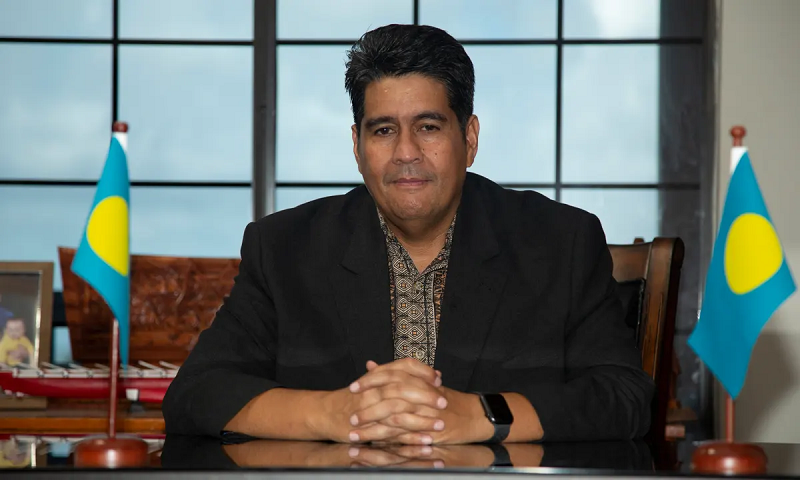As the UN Ocean Conference gets underway and global attention turns towards the ocean, political resistance to the emerging deep-sea mining industry gains traction.

President of Palau, Surangel Whipps, Jr. on Monday, June 27, 2022, joined the Deep Sea Conservation Coalition and WWF at an official conference side event in Lisbon, calling on behalf of his government for an immediate moratorium on deep-sea mining.
As the leader of the global call, the President launched the new Alliance of Countries Supporting a Deep-Sea Mining Moratorium. Oceanographer and marine biologist, Dr. Sylvia Earle, and Debbie Ngawera-Packer, Co-leader Te Pāti Māori, Member of Parliament, Aotearoa/New Zealand joined the President of Palau at the event to explore the wonders of the deep and the critical action needed to protect in the face of destructive mining.
President Whipps, Jr. said: “We all have to make sacrifices and come together as nations to achieve the greater good for our planet and our people. We know that deep-sea mining compromises the integrity of our ocean habitat that supports marine biodiversity and contributes to mitigating the impacts of climate change.”
Sian Owen, Director of the Deep Sea Conservation, applauded Palau’s call, saying: “We welcome the courage and integrity of President Whipps’ leadership on this issue. Palau has taken a stand for global ocean and planetary health. We hope that other governments will join them in specific action toward their bold commitments to reversing the downward spiral of environmental degradation.”
Last week, Chile called for a 15-year moratorium on adopting regulations that would allow deep-sea mining in a letter submitted to the annual meeting of States Parties to the United Nations Convention on the Law of the Sea at UN headquarters in New York. Chile cited concerns including the environmental damage deep-sea mining would cause and a lack of sufficient scientific data.
The growing political momentum for a stop to the emerging industry before it starts comes as opposition builds from communities, civil society, scientists, automobile, technology and other companies, the fishing industry and financial institutions. Earlier this month, the United Nations Environment Programme Finance Initiative published a new paper stating that, given the projected risks and environmental impacts, deep-sea mining should not be considered as part of a sustainable blue economy and investors should avoid the industry.
The ISA will meet in July and August to try to push through draft regulations that, if adopted, would see mining licenced to begin in the deep ocean as soon as July 2023. If permitted to proceed, it would be the biggest mining operation in history, far outstripping anything seen on land. Concerns surrounding the functioning and transparency of the ISA, however, continue to be raised. Last week, ISA member States and 31 organizations called on the ISA to reverse new participation restrictions that would see negotiations to develop a Mining Code for the industry happen behind closed doors.
“The UN Ocean Conference is about Sustainable Development Goals for the ocean but there is nothing sustainable about deep-sea mining,” said Matthew Gianni, co-founder of the DSCC. “To the contrary, deep-sea mining is the antithesis of the commitment by States to avoid adverse impacts, restore degraded marine ecosystems and strengthen their resilience to achieve healthy oceans set out in Target 2 of UN Sustainable Development Goal 14.”
“Rather than open up a new frontier of industrial extraction in our planet’s last wilderness, we need to hit ‘pause’ and focus three key things: ensuring that the ocean is healthy enough to provide its many ecosystem services such as food security and carbon sequestration; making production and consumption more sustainable; and accelerating deep ocean science research uncoupled from non-renewable extraction,” said the DSCC’s Sian Owen.
